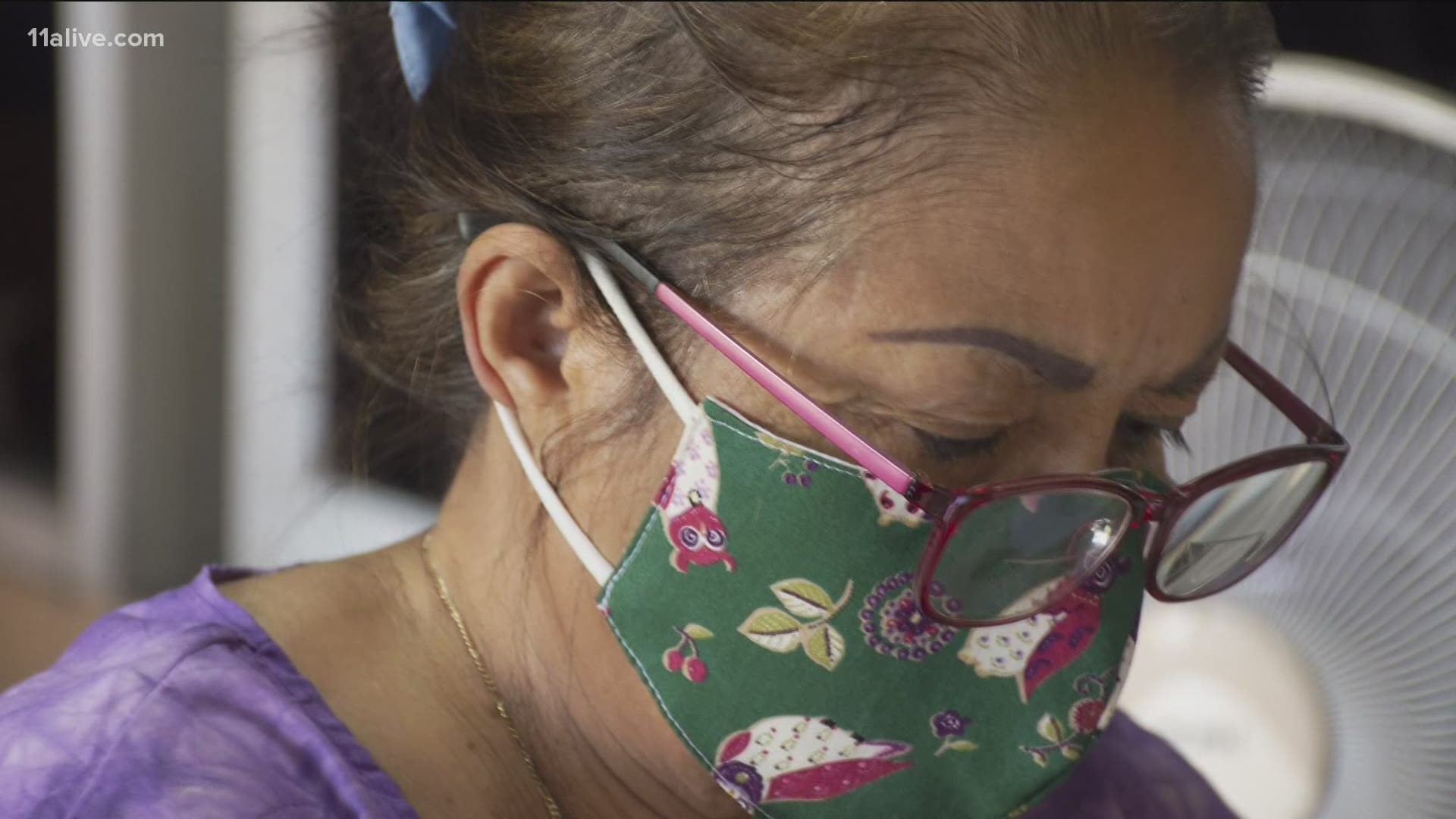ATLANTA — The COVID-19 pandemic has disproportionately impacted people of color. However, vaccine hesitancy among those groups continues to worry healthcare experts.
That's no different within the Latino community, where a lack of information in Spanish is creating misinformation and doubts about the shot.
A Kaiser Family Foundation poll found that 44% of Hispanic adults believe the needs of Hispanic people are not being taken into account in the distribution of the vaccine.
On top of that, the survey also found that about 60% of Black and Hispanic adults do not have enough information about where to get the vaccine, compared to 50% of white adults who say the same.
This hesitancy is something Erica Corona, who is originally from Mexico and moved to Norcross, Georgia seven years ago, has seen first-hand.
While she knows she will be getting the vaccine when she becomes eligible, a lot of her friends and family members do not want to. She said that's because there's not enough information in Spanish to educate the Latino community.
"Not even about personal protective equipment, like using a mask, or hand sanitizer," she explained. "Not all of us know, and not all of us understand."
To change that, local organization, Latino Community Fund (LCF) Georgia is stepping in to help.
LCF is partnering with the Consulate General of Mexico to make healthcare more accessible to Latinos in the state, fight misinformation and bring vaccine hesitancy down among this group. The initiative is called Ventanillas de Salud.
"To make sure that we understand that we're still part of the system and that we understand what's real, what's an idea, what's an opinion and what is science," said LCF Executive Director Gigi Pedraza.
RELATED: 'It’s a combination of challenges and risk factors' | COVID disproportionately affecting Latinos
Through the more than $100,000 partnership, they are aiming to refer Latinos to vaccination sites where they can find healthcare workers who speak their language, and put Spanish-language informational posters in stores where a high percentage of Latinos go.
"A lot of the registration systems are just overwhelmed, there are no appointments or its really hard to navigate, again, because of a language barrier," explained Pedraza. "Most of the registrations are not in Spanish, and most of our seniors are not comfortable managing a computer or don't have internet."
When putting these initiatives in place, Pedraza and Corona hope the nation will be one step closer to herd immunity.
"Sometimes, as Hispanic people, we dedicate a lot of time to our work, and we leave to the side important things, like our health," Corona said. "If information is in our language, that would be very helpful to try and stop the spread of COVID-19."
To contact people with the Ventanillas de Salud initiative, email ventanillasdesalud@gmail.com.

